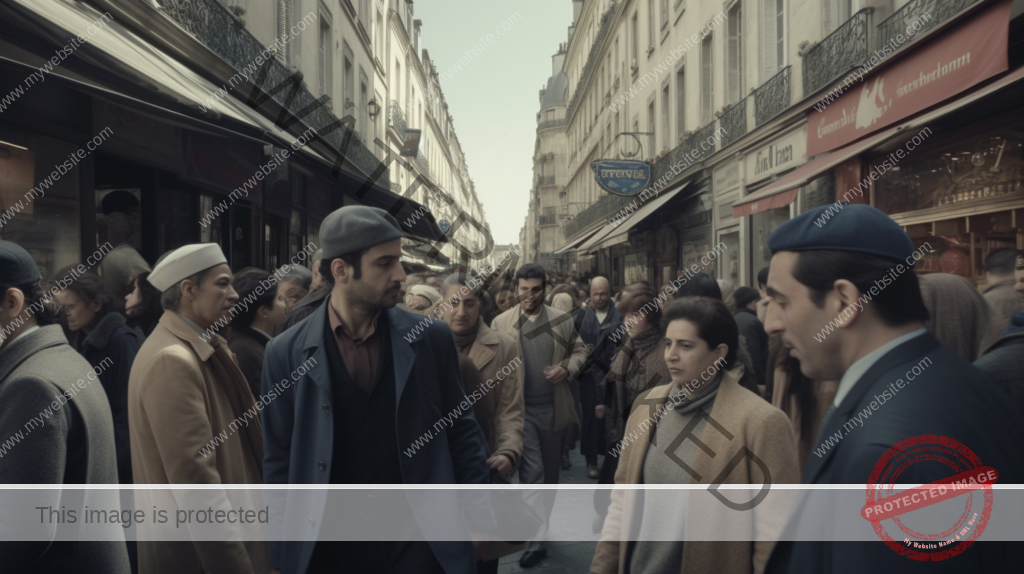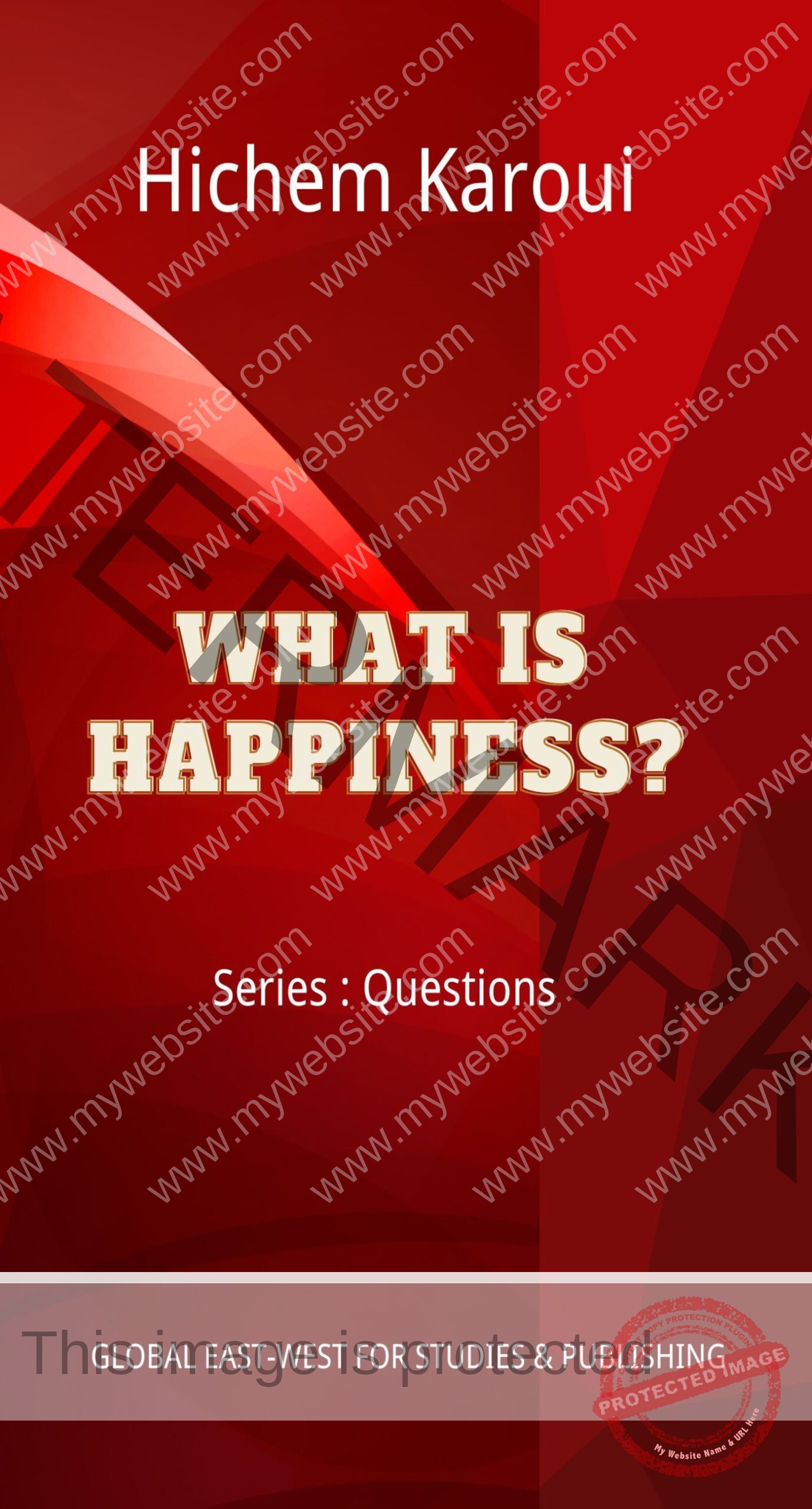The Voice of The Mediterranean (South France)/Global East-West (London):
Dive deep into the intricate history and complexities of France’s Arab policy with the upcoming release of Dr. Hichem Karoui’s insightful book, France’s Arab Policy: From De Gaulle to Macron. This meticulously researched work offers a comprehensive analysis spanning decades of diplomatic relations and foreign policy decisions between France and the Arab world. Readers will gain valuable insights into the evolution of these relationships, from Charles de Gaulle’s era to Emmanuel Macron’s presidency.
Dr. Karoui sheds light on pivotal moments, strategic shifts, and key decision-makers that have shaped this crucial aspect of French foreign policy. Through meticulous research and engaging narrative, this book will provide readers with a deeper understanding of how France has navigated its relationships with Arab countries over time. Whether you are an academic seeking in-depth analysis or a curious observer interested in global politics, France’s Arab Policy promises to be an essential addition to your reading list.
Get ready to embark on a captivating journey through historical events, geopolitical intricacies, and multifaceted alliances as Dr. Hichem Karoui unveils the complexities of France’s engagement with the Arab world in his upcoming book release. Gain access to unparalleled expertise as you explore the nuanced dynamics that have defined French-Arab relations for generations. With meticulous attention to detail and scholarly rigor, this book is poised to become an indispensable resource for anyone interested in international affairs or diplomatic history.
Introduction: Overview of Franco-Arab Relations
The relationship between France and the Arab world is deeply rooted in history, marked by a complex tapestry of interactions that have shaped contemporary diplomatic, cultural, and economic ties. The enduring nature of these Franco-Arab relations can be traced back to historical bonds that have transcended geopolitical shifts and regional transformations. Throughout the centuries, French engagement with the Arab world has been characterized by a multifaceted exchange of knowledge, ideas, and trade, which has left an indelible mark on both societies.
Dating back to the medieval period and the Crusades era, there has been a notable interplay of influence and interaction between the French and Arab worlds. The cultural exchanges during this period gave rise to enduring artistic, architectural, and intellectual legacies that continue to define the collective heritage of both regions. As Europe transitioned into the modern age, the colonial expansion of France into North Africa further solidified its engagement with the Arab world, setting the stage for a dynamic intercontinental relationship that continues to evolve today.
In the present day, Franco-Arab relations encompass a broad spectrum of engagements, including political alliances, economic collaborations, and cultural partnerships. The strategic significance of the Arab world, particularly in light of its energy resources, geopolitical relevance, and cultural diversity, underscores the continued importance of French diplomatic overtures in the region. Furthermore, a substantial Arab diaspora within France and the broader European context has contributed to a complex web of societal and cultural interactions that transcend national boundaries.
Notably, the enduring nature of French and Arab world interactions also underscores the challenges and opportunities inherent in navigating a diverse set of historical narratives, religious beliefs, and political aspirations. This convergence of complexities has engendered intricate patterns of cooperation and occasional discord, reflecting the multi-layered nature of contemporary Franco-Arab relations. Moreover, as globalization redefines diplomatic paradigms, the dynamics of power, influence, and cooperation between France and the Arab world continuously evolve, requiring a nuanced understanding of historical underpinnings and present realities.
In examining the overview of Franco-Arab relations, it is imperative to acknowledge the interconnectedness of past legacies with contemporary geopolitical frameworks. Understanding the endurance of these interactions necessitates a comprehensive appraisal of historical bonds and present-day complexities that define the multifaceted partnership between France and the Arab world.



Purpose and Scope of the Book
This book aims to provide a comprehensive and insightful analysis of Franco-Arab relations’ historical, political, economic, and cultural dimensions. By examining the intricate dynamics between France and the Arab world, this work sheds light on the complexities and nuances that have shaped this relationship over time. Through an interdisciplinary approach, the book offers a balanced and nuanced portrayal of the multifaceted interactions between these actors, encompassing both collaborative endeavors and contentious issues. The scope of this book extends beyond traditional diplomatic narratives, delving into pivotal themes such as colonial legacy, decolonization, energy partnerships, cultural exchanges, security cooperation, and contemporary challenges. By engaging with diverse topics, the book seeks to provide readers with a holistic understanding of Franco-Arab relations, transcending narrow perspectives and shallow analyses. Furthermore, this book endeavors to fill existing gaps in the literature by offering fresh insights and perspectives on the evolving nature of this vital geopolitical partnership. The overarching goal is to equip readers with a comprehensive and detailed resource that informs and stimulates critical thinking and informed discourse on the subject matter. We hope this book will be an essential reference for scholars, policymakers, students, and all interested in gaining a deeper insight into Franco-Arab relations. By scrutinizing this relationship’s historical trajectory and contemporary dynamics, the book seeks to contribute to a more profound comprehension of Franco-Arab relations’ past, present, and future, fostering greater awareness and strategic reasoning in navigating this critical interface of international affairs.
Methodology and Research Approach
A comprehensive and rigorous methodology is essential to analyzing Franco-Arab relations, ensuring the accuracy and reliability of the research findings. This book adopts a multidisciplinary approach that draws upon historical analysis, political science, international relations, and cultural studies. By integrating these various disciplines, we aim to provide a holistic understanding of the complexities inherent in the diplomatic interactions between France and the Arab world.
The research approach undertaken for this endeavor is primarily qualitative, encompassing extensive literature review, archival research, and interviews with key stakeholders, including diplomats, policymakers, scholars, and representatives from civil society organizations. By delving into primary sources such as diplomatic correspondence, official documents, and speeches, we strive to unearth the underlying motivations and strategies shaping Franco-Arab relations over time.
Furthermore, this book incorporates a comparative analysis of Franco-Arab relations with other diplomatic relationships, enabling a nuanced assessment of the distinct features and challenges involved. The case study method illustrates specific instances and events that have been pivotal in shaping the trajectory of Franco-Arab relations, offering valuable insights into the dynamics of this enduring partnership.
The utilization of theoretical frameworks is integral to our research approach. They provide a conceptual lens to interpret the complex interplay of historical, geopolitical, and cultural factors. Blending theoretical perspectives with empirical evidence allows for a deeper comprehension of the underlying power dynamics, identities, and interests underpinning Franco-Arab relations.
Moreover, a thematic analysis framework is utilized to categorize and analyze the multifaceted dimensions of Franco-Arab relations, allowing for the identification of recurring themes, divergences, and convergences within this diplomatic landscape. This thematic approach enables the exploration of diverse aspects such as economic cooperation, security partnerships, cultural exchange, and human rights diplomacy, thus enriching the breadth of analysis.
Lastly, an inclusive and reflexive research approach is adopted, recognizing the agency and perspectives of diverse stakeholders within the Franco-Arab context. This inclusive stance aims to encapsulate the voices and experiences of various actors, acknowledging the nuances and complexities embedded within this multifaceted relationship. It ultimately contributes to a more nuanced and comprehensive understanding of Franco-Arab relations.
Historical Context and Rationale
The historical context of Franco-Arab relations is rooted in a complex interplay of colonial legacies, geopolitical interests, and cultural exchanges that have shaped the dynamics between France and the Arab world. Dating back to the era of European colonialism, particularly in North Africa and the Middle East, France established a significant presence in the region, leaving a lasting impact on these territories’ social, political, and economic structures. This colonial legacy continues to influence diplomatic relations and partnerships in the contemporary era, providing the foundation for understanding the deep ties and occasional tensions between France and Arab countries.
Understanding the historical rationale behind the development of Franco-Arab relations is essential for discerning the motivations, challenges, and opportunities that have characterized this bilateral engagement. The historical context encompasses pivotal moments such as the decolonization process, the emergence of independent Arab states, and the reconfiguration of power dynamics in the post-World War II era. These historical shifts have contributed to the evolution of diplomatic strategies, mutual dependencies, and areas of cooperation between France and the Arab world.
Furthermore, the rationale for exploring the historical context lies in its capacity to offer insights into the enduring impact of historical events on contemporary diplomatic engagements. By delving into the history of Franco-Arab relations, we gain a deeper appreciation for the complexities, sensitivities, and cultural nuances that inform diplomatic interactions and policy decisions today. Additionally, examining the historical rationale provides a framework for analyzing the continuity and transformation of Franco-Arab relations amidst shifting global paradigms, regional conflicts, and socioeconomic developments.
Moreover, the pursuit of historical context and rationale bridges past experiences and future prospects in Franco-Arab relations. It enables a comprehensive assessment of the legacies, lessons, and unresolved issues that bear significance for policymakers, diplomats, scholars, and stakeholders invested in expanding and diversifying bilateral ties. Ultimately, situating Franco-Arab relations within their historical context illuminates the layered narratives, identities, and interests that converge in shaping the multifaceted partnership between France and the Arab world.

Significance of Colonial Legacy in Modern Diplomacy
The colonial legacy has undeniably left an indelible mark on modern diplomacy, particularly in Franco-Arab relations. The historical remnants of colonialism continue to shape the dynamics of diplomatic interactions between France and the Arab world, influencing policies, perceptions, and power structures. Understanding the significance of this colonial legacy is crucial in comprehending the complexities and nuances of contemporary Franco-Arab relations, as it provides crucial insights into the historical grievances, power differentials, and enduring narratives that underpin diplomatic engagements. This section delves into the multifaceted significance of colonial legacies in shaping the landscape of modern diplomacy between France and the Arab nations. Firstly, the imposition of colonial rule by European powers in the Middle East and North Africa reshaped the socio-political and economic structures of the region, engendering lasting consequences that continue to reverberate in present-day diplomatic relations. The extraction of resources, imposition of boundaries, and imposition of governance systems during the colonial era heavily influenced the trajectory of development, statehood, and national identities within the Arab world. These factors have directly impacted diplomatic discourse and negotiations between France and Arab states, contributing to ongoing conflicts, economic dependencies, and identity politics. Additionally, the colonial legacy has also left a deep imprint on the psyche of both the colonizer and the colonized, shaping mutual perceptions, biases, and lingering sentiments of resentment or entitlement. The legacy of cultural assimilation, linguistic impositions, and erasure of indigenous identities during the colonial era continues to influence diplomatic encounters, with echoes of past oppressions still resonating in contemporary negotiations. Furthermore, examining the colonial legacy through the lens of diplomacy unveils the persisting power differentials and hierarchies embedded within international relations. France’s historical role as a colonial power and its subsequent influence over former colonies inherently shape the power dynamics and asymmetrical relationships that define modern diplomatic engagements. This unequal distribution of power and privileges stemming from the colonial past informs the negotiation strategies, policy formulations, and structural inequalities that characterize Franco-Arab diplomacy. Ultimately, comprehending the significance of the colonial legacy in modern diplomacy serves as a vital prerequisite for discerning the intricacies, challenges, and potential pathways for recalibrating Franco-Arab relations in the 21st century.
The Evolution of Diplomatic Policies
Throughout history, the relationship between France and the Arab world has been shaped by a complex interplay of diplomatic policies. From the colonial era to the present day, both regions have undergone significant transformations, influencing the nature and priorities of their diplomatic engagements. At the onset, colonial expansion and imperialism defined French relations with Arab countries, establishing power dynamics that continued to influence modern diplomacy. This historical context paved the way for the evolution of diplomatic policies as both France and the Arab world sought to redefine their roles on the global stage.
The decolonization period marked a pivotal juncture in the evolution of diplomatic policies as former colonies gained independence and embarked on nation-building efforts. This era witnessed a shift in diplomatic priorities, necessitating a nuanced approach to bilateral and multilateral relations. France’s engagement with newly independent Arab nations required a delicate balance between acknowledging historical ties and adapting to the principles of sovereignty and self-determination.
The following decades saw new geopolitical realities emerge, including the Cold War and its impact on Franco-Arab relations. France navigated this tumultuous period by recalibrating its diplomatic policies to accommodate the competing interests of superpowers while simultaneously fostering partnerships with Arab states. Economic cooperation, military alliances, and cultural exchanges became integral components of France’s diplomatic strategy, illustrating the multifaceted nature of diplomatic engagement.
As the global landscape continued to evolve, so did the diplomatic policies of France and the Arab world. Changing economic dynamics, technological advancements, and security challenges prompted a reevaluation of strategic priorities and collaborative initiatives. The 21st century has witnessed an increasing emphasis on issues such as counterterrorism, energy security, environmental sustainability, and human rights, shaping the contours of contemporary diplomatic policies.
Furthermore, the digital era has revolutionized diplomatic practices, enabling real-time communication, public diplomacy, and international advocacy through digital platforms. France and Arab nations have embraced these technological advancements to amplify their diplomatic outreach and foster greater understanding and cooperation among diverse populations.
In light of these transformative trends, the evolution of diplomatic policies reflects a dynamic interplay of historical legacies, geopolitical shifts, and contemporary imperatives. Understanding this evolution is crucial for comprehending the complexities and possibilities that characterize Franco-Arab relations today, laying the foundation for substantive analysis in this comprehensive exploration of diplomatic history and contemporary interactions.
Major Themes Addressed in This Book
The major themes addressed in this book encompass a wide array of critical issues and pivotal events that have shaped the complex tapestry of Franco-Arab relations throughout history. At the heart of this examination lies an exploration of the intricate interplay between colonial legacies, geopolitical forces, economic dynamics, cultural exchanges, security concerns, and the evolving nature of diplomatic ties. The narrative delves into the multifaceted dimensions of France’s engagement with the Arab world, shedding light on the historical contexts, nuanced power dynamics, and the contemporary challenges and opportunities that define this relationship. Key themes include the legacy of colonialism and its enduring impact on diplomatic initiatives and regional dynamics, the role of cultural diplomacy in fostering mutual understanding and collaboration, the significance of economic partnerships and energy interests, the complexities of security cooperation in an era marked by terrorism and geopolitical tensions, the promotion of human rights and democratic values, as well as the role of France in peacekeeping efforts and conflict resolution within the region. Additionally, the book addresses the imperatives of sustainable development and environmental cooperation, France’s influence in North Africa, its engagement in the Middle East conflicts, the interplay of soft power and public diplomacy, gender equality and women’s rights, migration challenges and integration policies, and the emerging domains of cybersecurity and digital diplomacy. Through an in-depth analysis, this book aims to comprehensively understand the essential themes underpinning Franco-Arab relations, offering insights into the broader implications for global politics, security, and socio-economic development. Ultimately, it seeks to illuminate the interconnectedness of these themes and their relevance in shaping the future trajectory of this vital international partnership.

Structure of the Book
The book is organized into a comprehensive analysis of Franco-Arab relations, spanning from historical perspectives to contemporary diplomatic dilemmas. Each chapter delves into specific facets of this complex relationship, thoroughly examining key events, policies, and interactions that have shaped Franco-Arab relations over time. The book’s structure aims to provide a multidimensional understanding of the nuances and intricacies inherent in this dynamic diplomatic engagement. The chapters are meticulously crafted to offer a cohesive narrative, guiding readers through the evolution of Franco-Arab relations and shedding light on the factors driving this bilateral interaction. Moreover, the chronological arrangement of chapters enables readers to grasp the progressive transformations and pivotal milestones that have influenced the course of these relations. Special emphasis is given to the contextual depth of each chapter, drawing on historical, political, cultural, and socio-economic dimensions to present a holistic portrayal of Franco-Arab relations. Furthermore, the chapters are interlinked, creating a coherent flow that aids in comprehending the continuity and shifts within this diplomatic paradigm. This interconnectedness allows a nuanced understanding of the intersecting themes and developments shaping Franco-Arab relations. In addition, the book incorporates diverse perspectives and analytical frameworks, incorporating insights from renowned scholars, diplomats, and experts in the field of international relations. This inclusive approach enriches the discourse with multifaceted views and interpretations, fostering a more comprehensive and insightful examination of the intricate dynamics at play. The book’s structure encourages readers to deeply understand the complexities, challenges, and opportunities inherent in Franco-Arab relations, thereby equipping them with a nuanced lens through which to analyze and comprehend this vital aspect of global diplomacy.
Importance for Contemporary Policy Makers
In the contemporary geopolitical landscape, Franco-Arab relations hold immense significance for policymakers at both regional and international levels. These relations have historical roots and present ongoing complexities and opportunities that directly impact global peace, security, and socioeconomic cooperation. Understanding and navigating these dynamics is crucial for contemporary policymakers for several reasons.
Firstly, the proximity of the Arab world to Europe and its strategic importance in various global affairs make Franco-Arab relations a focal point for decision-makers. The interconnectedness of economic, energy, and security interests necessitates a nuanced understanding of the diplomatic ties between France and the Arab countries. Policymakers need to acknowledge the impact of these relations on a wide range of issues, including trade flows, energy security, and counterterrorism efforts.
Secondly, with ongoing conflicts and crises in the Middle East and North Africa, the role of France in mediating and contributing to regional stability is paramount. Contemporary policymakers must assess the implications of French engagement in conflict resolution, peacekeeping missions, and humanitarian interventions within the Arab world. This involves evaluating the effectiveness of France’s diplomatic initiatives and its alignment with broader regional and international strategies for sustainable peace and security.
Moreover, as the global community grapples with challenges such as migration, refugee crises, and the impact of extremism, policymakers need to recognize the implications of Franco-Arab relations on these interconnected issues. France’s policies regarding immigration, multiculturalism, and integration of diverse communities directly intersect with its relations with Arab nations, thereby shaping its domestic and foreign policy agendas. Recognizing the influence of these dynamics is essential for formulating comprehensive policies that address societal cohesion, human rights, and global migration patterns.
Additionally, contemporary policymakers must consider the evolving cultural, educational, and scientific exchanges between France and the Arab world. These exchanges promote mutual understanding, foster academic partnerships, and address shared challenges such as climate change and technological innovation. As such, policymakers need to assess the role of these cooperative endeavors in advancing shared goals and bridging societal divides across borders.
Lastly, the context of Franco-Arab relations intersects with broader international frameworks, including the European Union, the United Nations, and regional organizations. Contemporary policymakers are tasked with navigating the alignment of France’s engagements with Arab countries within these multilateral frameworks and examining the implications for global governance structures and collective action on transnational issues.
In conclusion, grasping the multifaceted nature of Franco-Arab relations is indispensable for contemporary policymakers seeking to formulate informed, effective, and inclusive strategies. By recognizing these relations’ historical, geopolitical, and socio-economic dimensions, policymakers can cultivate diplomatic approaches that promote stability, cooperation, and prosperity in an increasingly interdependent world.
Preview of Subsequent Chapters
The subsequent chapters of this book will delve deeper into the multifaceted and dynamic relationship between France and Arab nations, exploring a wide range of historical, political, economic, and social aspects influencing their interactions.
Chapter 1, ‘Colonial Legacy and Early Diplomacy (Pre-1958),’ will set the historical context by examining colonialism’s impact on Franco-Arab relations and early diplomatic engagements before the Algerian War of Independence.
In Chapter 2, ‘De Gaulle’s Vision: Redefining Franco-Arab Relations (1958-1969),’ we will explore Charles de Gaulle’s visionary approach and its pivotal role in reshaping the diplomatic landscape between France and Arab countries during that period.
Navigating through the complexities of the Cold War era, Chapter 3, ‘Navigating the Cold War (1950s-1980s),’ will unravel the intricate dynamics of Franco-Arab relations amidst global power struggles and regional conflicts.
The subsequent chapter, ‘Decolonization and Independence (1960s-1970s),’ will illuminate the processes of decolonization and the emergence of independent Arab states, alongside the challenges and opportunities they presented for Franco-Arab relations.
As we progress, Chapter 5, ‘Economic Partnerships and Energy Interests (1970s-1990s),’ will illuminate the evolution of economic collaboration and the growing significance of energy resources in shaping bilateral ties.
Moreover, a dedicated section will probe ‘Cultural Diplomacy and Exchange Programs’, reflecting on the cultural initiatives and exchange programs that have enriched the mutual understanding between France and Arab nations.
Additionally, ‘ France and the Gulf States will dissect France’s engagement with the Gulf States, emphasizing the strategic partnerships and unique dynamics defining their interactions.
In’ Franco-Arab Cooperation in Education and Research, ‘ we will also examine the role of education and research in fostering mutual cooperation.
Furthermore, the book will address contemporary challenges such as terrorism, security cooperation, human rights, and peacekeeping efforts in subsequent chapters to provide a comprehensive understanding of the complexities facing Franco-Arab relations.
The final chapters of this book will pivot towards discussions on the future of Franco-Arab relations, analyzing potential trajectories, exploring the role of soft power and digital diplomacy, and addressing pressing issues like gender equality, refugee crises, and cybersecurity.
Throughout these chapters, readers will gain valuable insights into the historical progression, current dynamics, and prospects of the enduring relationship between France and the Arab world, offering a nuanced portrayal that transcends conventional narratives.


